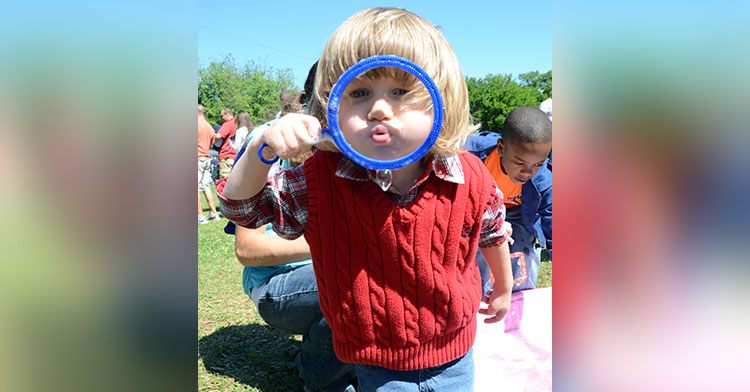My friends have a fabulous toddler. He runs up and down the hall just for the joy of running. He revels in getting a spoon of food to his mouth. He shoves sounds together into sentences and beams at his own success. He hasn’t figured out yet that anything is wrong – with him or with the world. He doesn’t even know that wrong exists.
Videos by InspireMore
Most of us started out this way, receiving the love, attention, and praise that we all need. But for some of us, something unexpected happened around age two. We were still doing the same adorable stuff, but some of it became inconvenient, and even inappropriate, to the adults around us. And they began acting differently toward us.
In order to fit all the norms, it’s as if we became the square pegs that our parents needed to pound into the round holes. And not surprisingly, they sometimes turned to disapproval and even punishment.
How did we respond? “How can I get the love back?!” is all we could think about.
This is not about parent-bashing. Everyone’s doing the best they can with what they have to work with and what they’ve figured out so far.
Our parents’ approval became conditional, depending on whether we did what they wanted. And most of us adapted our behavior so they would tell us that we were all right: “Good boy.” “Good girl.”
The big issue in life became: Am I all right? And since we were little, we let others determine that for us. We even let our parents, older siblings, teachers, and authority figures, in general, decide whether we were good or bad, nice or mean, stupid or smart, hyperactive or lazy, average or great.
Over time, we figured out that something we needed could be withheld – which led to fear-based thoughts like: “I’m not good enough.” “I’m afraid people won’t like me.” “I’m not smart enough to earn good grades.” “I couldn’t possibly get that great job.”
We gave away our power to choose how to feel, think, and act.

Grace de Rond
My friends’ toddler doesn’t know about wrong. He’ll find out soon, though. Not from his parents because they’re super in their roles, but probably from the local playground or from daycare. There will be a moment when he’ll do something that someone, either a child or an adult, won’t like and will want him to stop doing. And that person will reprimand him to get him to change – maybe even adding shame to guarantee the desired results.
If my friends’ son takes in the disapproving message and believes it about himself, he could spend the rest of his life unlearning that he, or anyone else, is wrong. But his family is focused on not letting that happen.
It takes a lot of courage to believe in ourselves when people want us to change so that they can feel better. E. E. Cummings wrote: “To be nobody but yourself, in a world doing its best to make you everybody else, means to fight the hardest battle any human can ever fight and never stop fighting.”
We need to keep reminding ourselves that we’re all right just as we are – because we’ve decided it and we’re not letting anyone else make that decision for us anymore.
This story originally appeared on gracederond.com
Want to be happier in just 5 minutes a day? Sign up for Morning Smile and join over 455,000+ people who start each day with good news.


